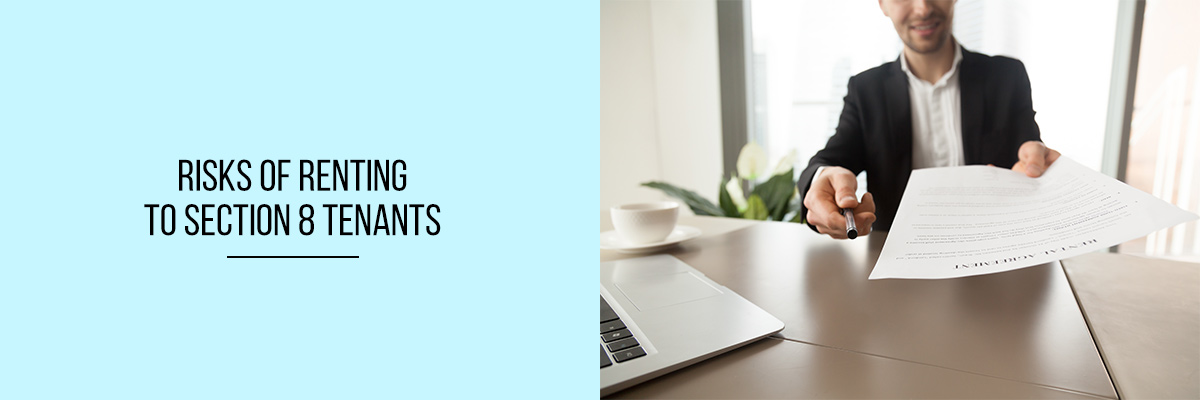The Section 8 housing choice voucher program has been in place since 1974, and since then it has evolved to become a frequently used housing assistance option for low-income families. Section 8 housing vouchers are a common way for poor families to pay for housing. But many landlords are wary of renting to these tenants, who they worry will damage their property. Cities and states have tried to allay these concerns by limiting landlords’ liability. But that protection is often limited or non-existent if the landlord is proven to have contributed to the damage themselves. This means a landlord who tries to save money by hiring a maintenance crew that does poor work will not have any legal protection against a tenant’s damage claims.



Any landlord considering renting to Section 8 tenants should be aware of the risks involved. Although Section 8 housing assistance can be a win-win situation for landlords and tenants, responsible landlords should do thorough research on Section 8 tenants to ensure they are a good match for their property. Here are some risks that a landlord may encounter when dealing with the Section 8 tenants.
1. Yearly Section 8 Inspections
If you are a Section 8 landlord, you need to prepare for an annual inspection of your property. The inspection process will vary from state to state, but in general, you should be prepared to let your property be inspected by the state for compliance with health and safety codes on an annual basis.
2. Security Deposits Are Not Paid by Section 8 Tenants
The Housing and Urban Development (HUD) Section 8 program provides housing vouchers to low-income families, including senior citizens and people with disabilities. Each voucher is worth about 25% of a low-income family’s gross monthly income. The voucher holder can then use the voucher to pay the landlord of their choice, typically the owner or manager of a small to a mid-sized apartment complex. Section 8 housing vouchers pay the family’s full rent, and the family pays the landlord the difference between their portion and the total rent, known as the security deposit.
3. Property Damage
The majority of landlords for properties that accept Section 8 (government-subsidized) tenants are aware of the potential property damage that can occur, and prepare accordingly. Most landlords go through the proper screening process to ensure that their property will not be damaged and that the tenant may be evicted if damage occurs.
4. Section 8 Sets Rent Outlay
Section 8 is a government housing assistance program that assists low-income renters with paying their rent, and the amount Section 8 will pay is determined by the Fair Market Rent (FMR) of the area. The FMR is the Department of Housing and Urban Development’s (HUD) estimate of how much the average family spends on rent in a given area. It’s calculated based on a survey of rental units in an area, and the FMR is updated every year.
Final Words
To be approved to participate in the Section 8 Housing Choice Voucher Program, a landlord must agree to rent to tenants who do not have the financial means to pay for housing. In exchange for renting to such tenants, the landlord is given a choice voucher to be used toward the tenant’s payments.
Attend the Compliance Prime webinar to know more about renting Section 8 tenants.


